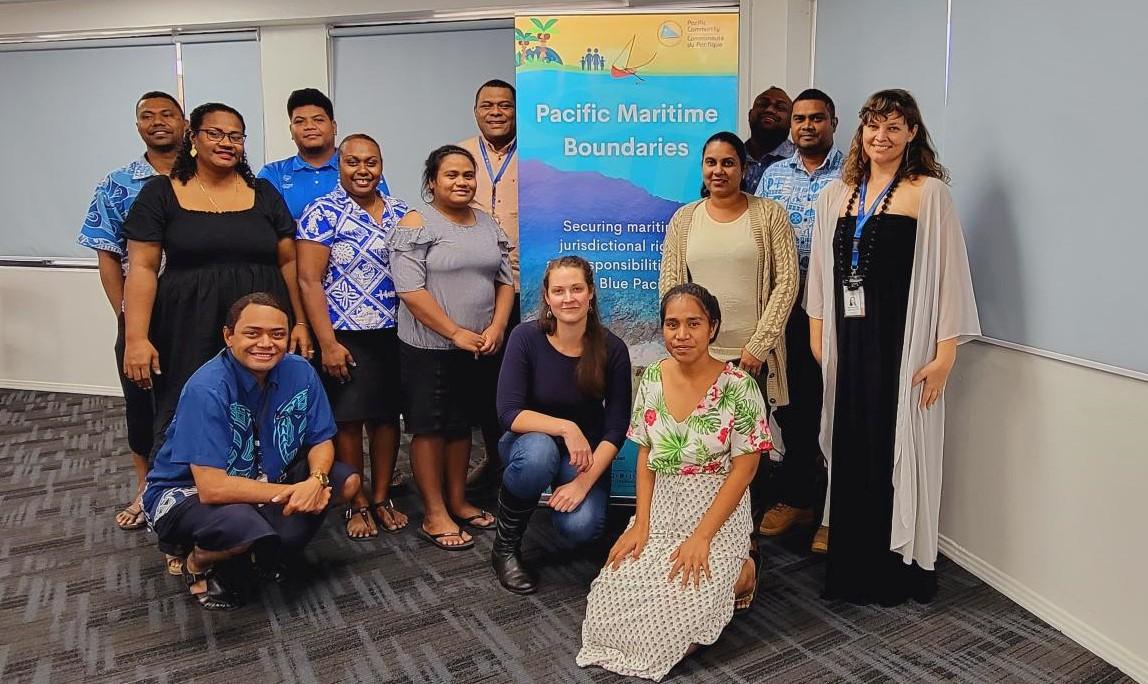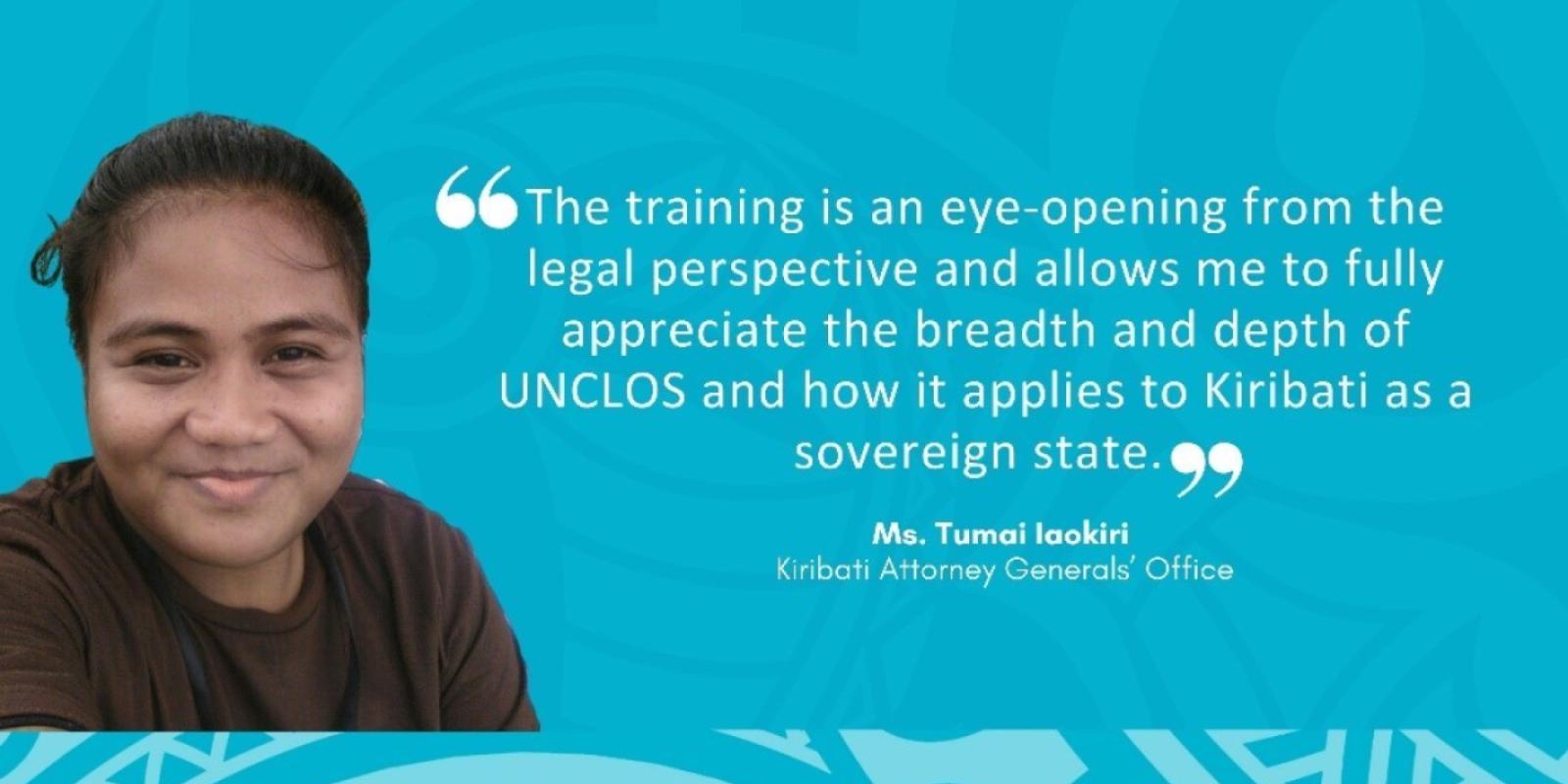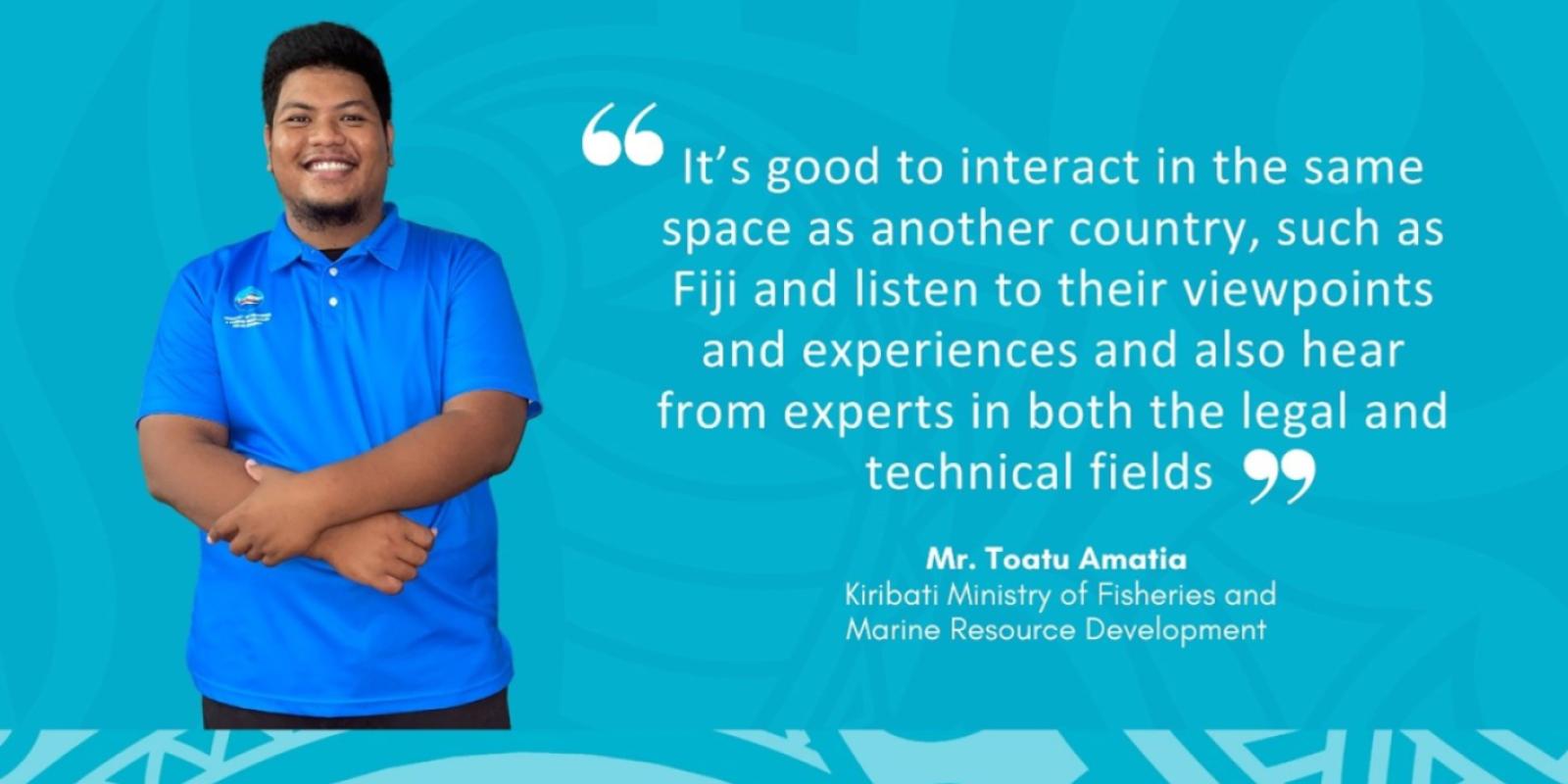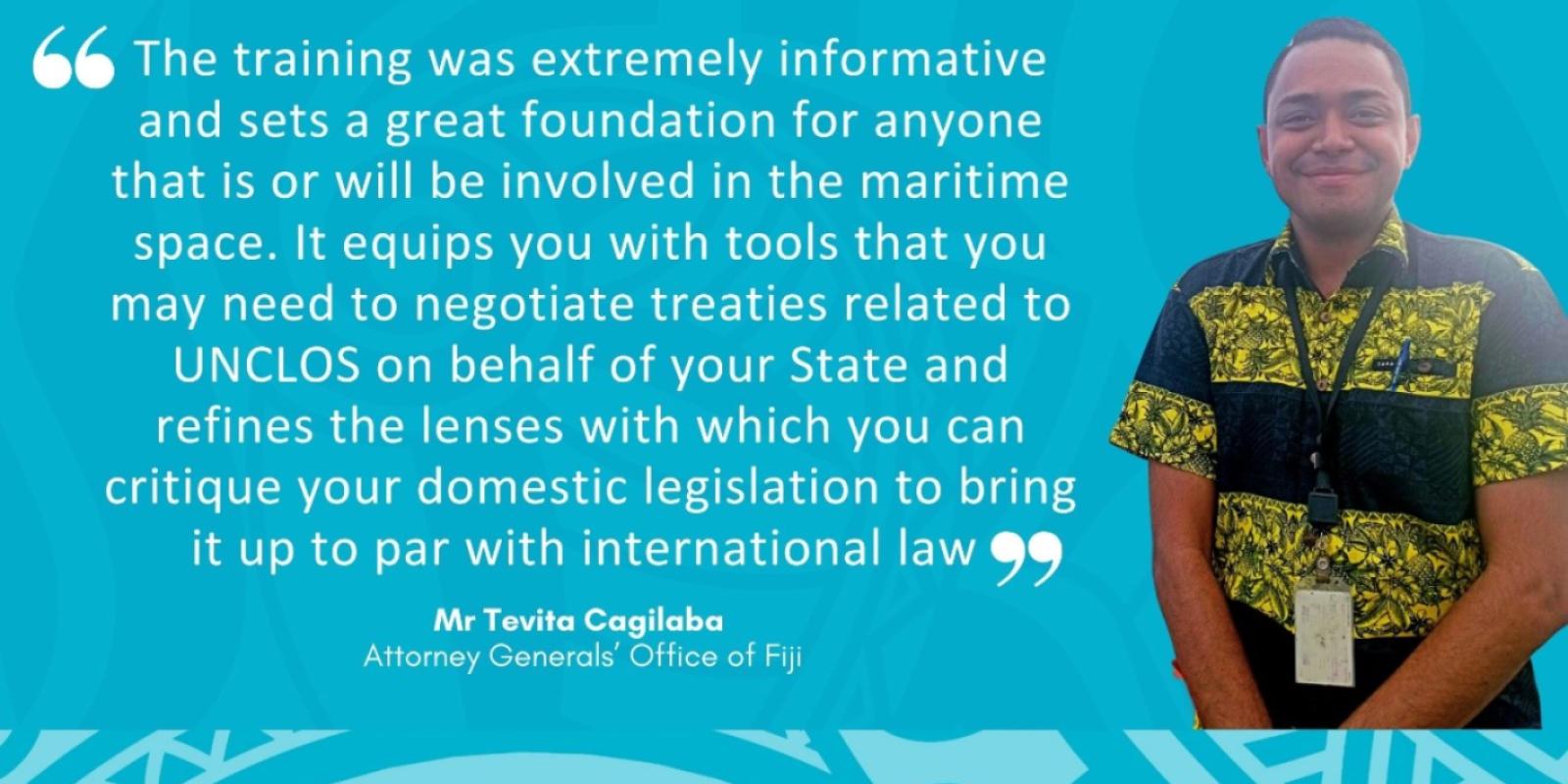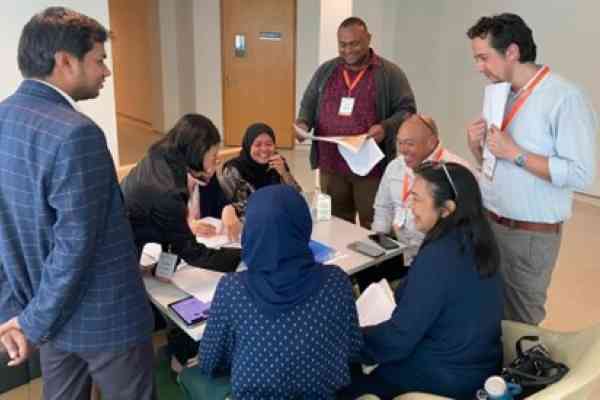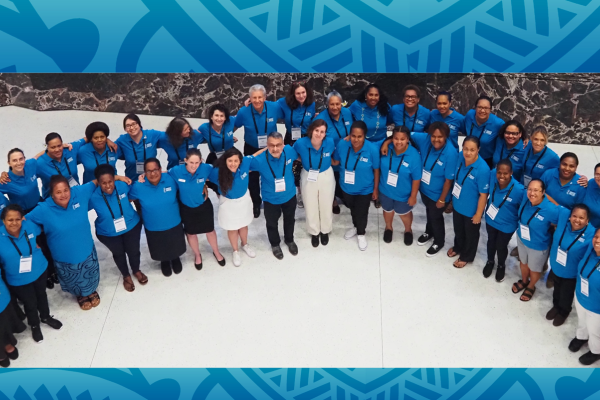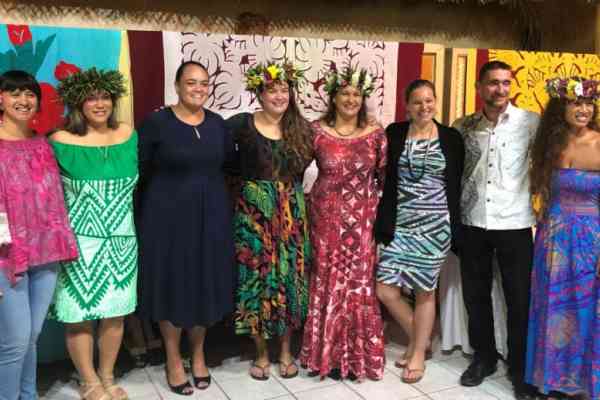(Contenu disponible en anglais uniquement)
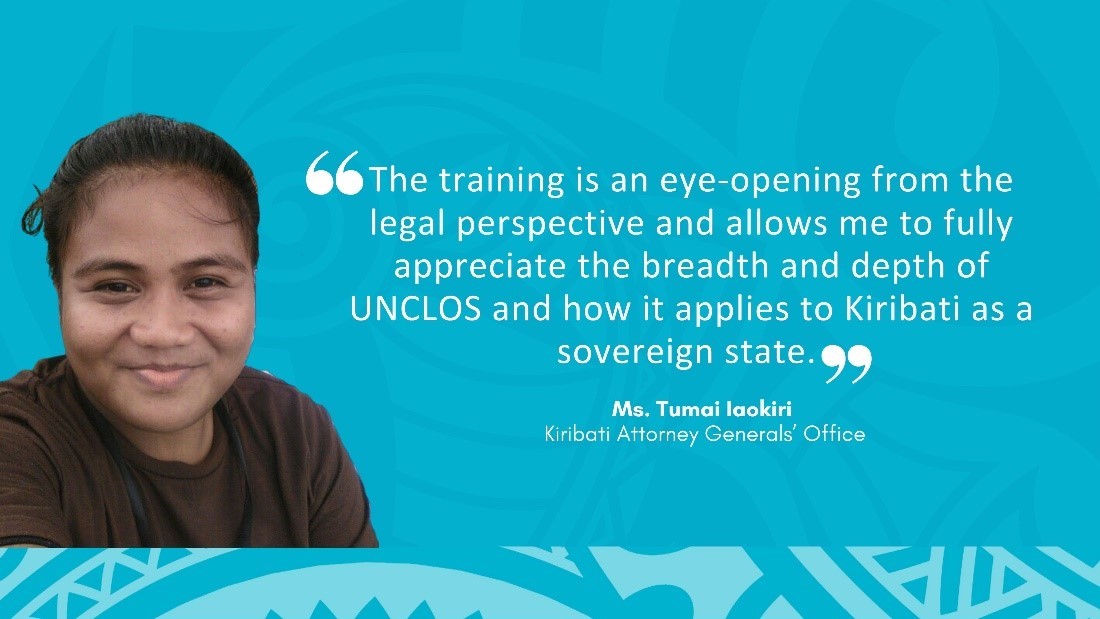 Ms Tumai Laokiri works in the Attorney General’s Office for the Republic of Kiribati, a country made up of low-lying coral islands with one of the largest ocean spaces or maritime zones in the world.
Ms Tumai Laokiri works in the Attorney General’s Office for the Republic of Kiribati, a country made up of low-lying coral islands with one of the largest ocean spaces or maritime zones in the world.
Ms Laokiri is a lawyer with a passion for the ocean and for the United Nations Convention for the Law of the Sea (UNCLOS), which is the legal mechanism that ensures countries can benefit from their own maritime zones, also known as exclusive economic zones.
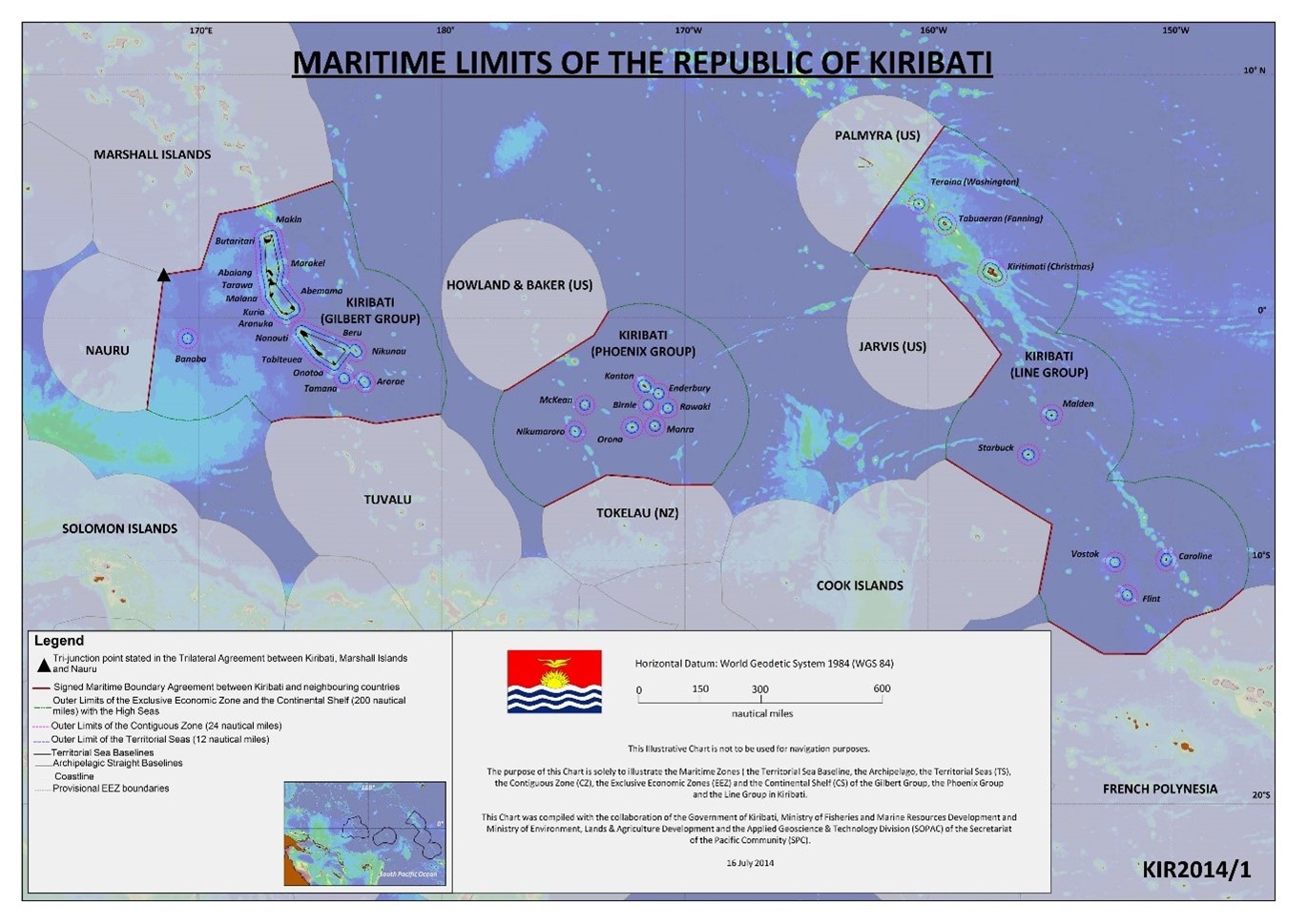 The Pacific region is a global leader in securing its maritime boundaries, having led this work for almost 30 years in accordance with UNCLOS, and to date, the Pacific has about 75 of its zones secured.
The Pacific region is a global leader in securing its maritime boundaries, having led this work for almost 30 years in accordance with UNCLOS, and to date, the Pacific has about 75 of its zones secured.
However, to ensure Pacific lawyers and practitioners in the region continue to lead this space in the face of sea-level rise and the impact of the climate crisis, the Pacific Community (SPC) has been supporting emerging teams as part of its Pacific Maritime Boundaries Programme.
This was supported recently through training attachments at SPC’s offices in Fiji for Kiribati and Fiji legal officials to support increased engagement and learnings with the UN Law of the Sea and its application in our current climate.
Ms Laokiri was one of 15 practitioners who were part of the team to work alongside SPC Maritime Boundaries and technical specialists, and this work will support nationally led actions to support maritime delimitation and sovereign rights and use of exclusive economic zones.
The voyage continues
Kiribati has three remaining delimitation treaties to enter into force, including treaties with Nauru, Republic of the Marshall Islands (RMI), and Tuvalu.
Fiji has two outstanding treaties to negotiate with the Kingdom of Tonga and Vanuatu, while the Fiji-Solomon Islands Treaty was recently signed at the 2022 Pacific Leaders meeting, the first in the region since 2016 and is now awaiting entry into force.
The attachment training at SPC is supporting this work at national levels as it provides an opportunity to discuss the next steps to bring this treaty into force and explore legislative reforms aligning national legislation with UNCLOS provisions.
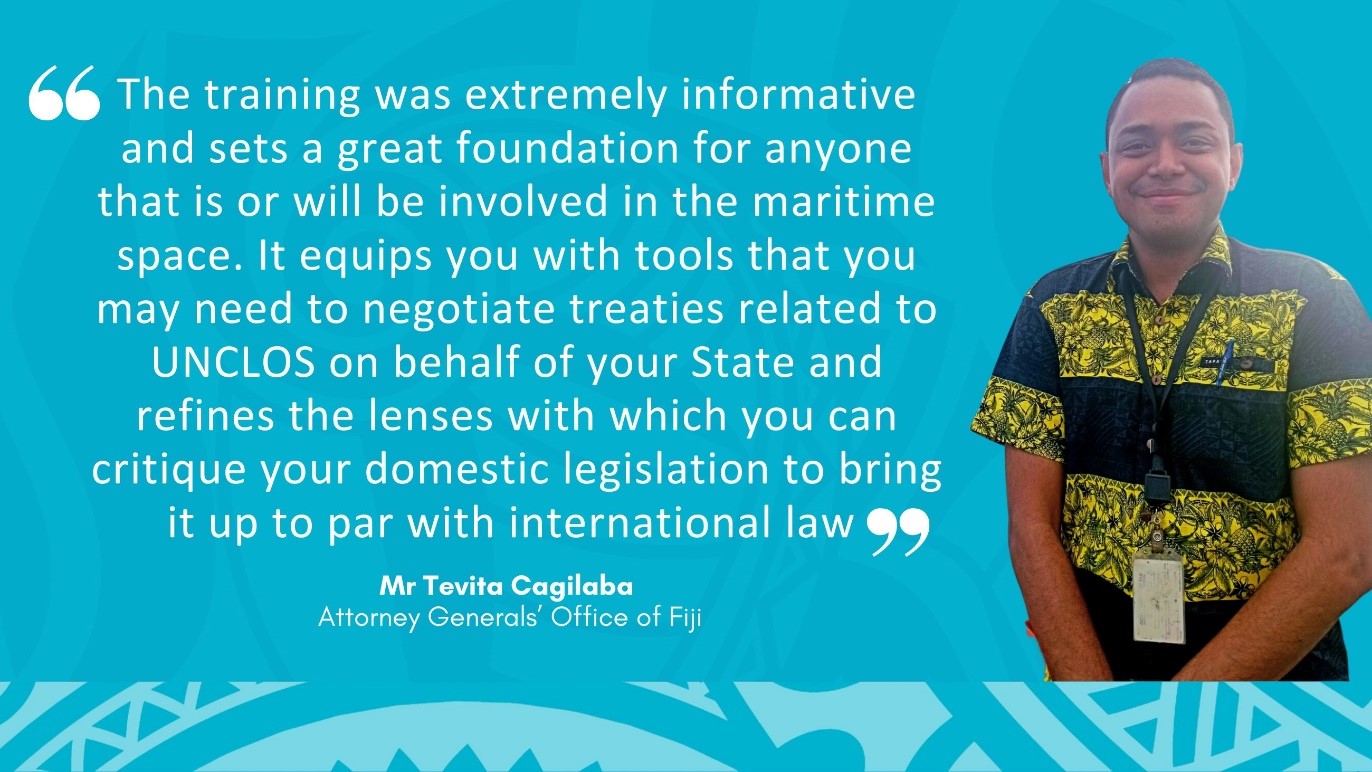
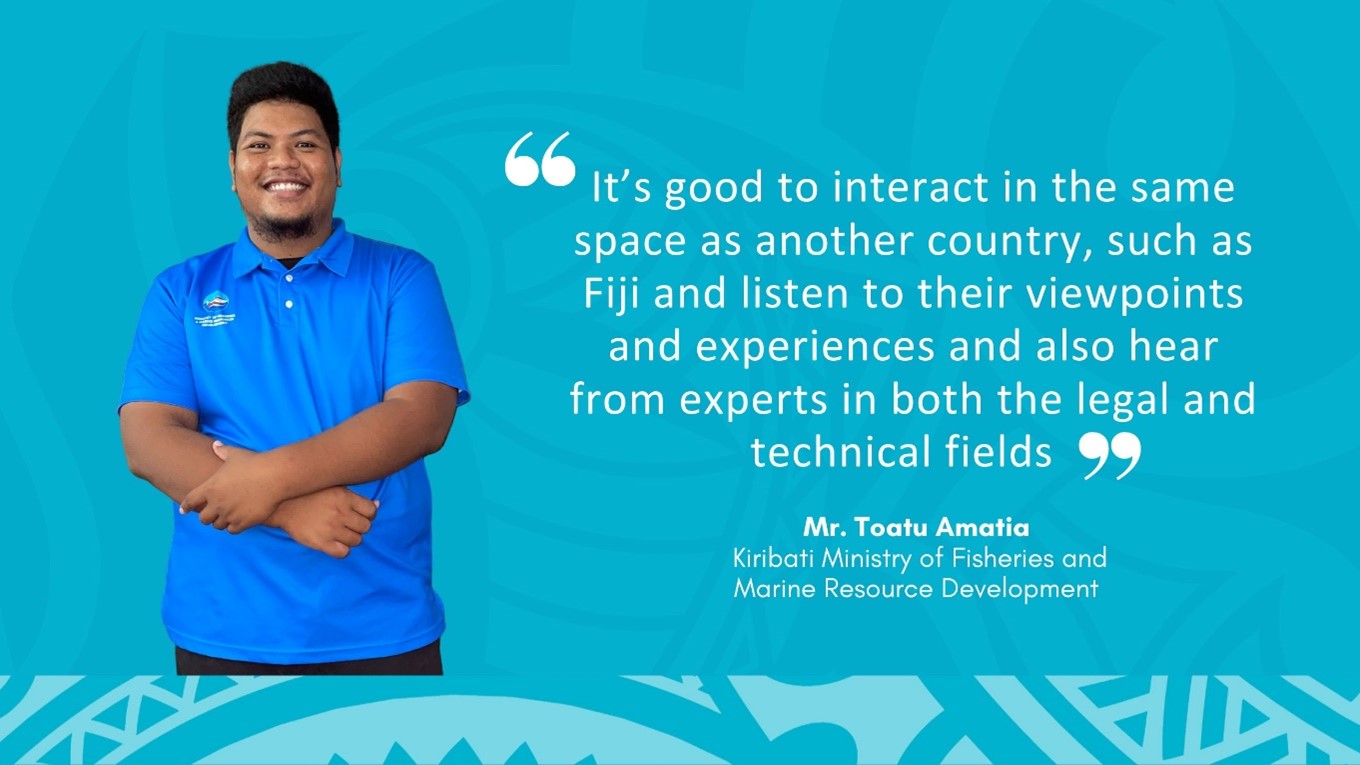
Why these training attachments are important?
The training focused on the basic provisions of UNCLOS as it applies to coastal states within the Pacific. Under the Convention, PICs have certain rights and obligations regarding their maritime zones, including the establishment of a marine jurisdiction, a 200 nautical mile exclusive economic zone (EEZ), and exclusive rights to the seabed of the continental shelf extending beyond the EEZ.
Accurate data usage, implementation by national governments, and depositing relevant geographical coordinates with the United Nations Division for Ocean Affairs and the Law of the Sea (UNDOALOS) are critical in establishing these zones.
The training covered regional frameworks aligned with UNCLOS, including the Pacific Islands Forum Declaration on Sea-Level Rise and Maritime Zones and the region's continuous engagement at global levels on ocean governance and management issues, such as the recently adopted Treaty under UNCLOS for Marine Biodiversity of areas Beyond National Jurisdiction (BBNJ).
The Pacific Maritime Boundaries Programme supports Pacific Island Countries and Territories to secure the rights and responsibilities over their ocean space in accordance with the UN Convention of the Sea (UNCLOS).
The Programme is coordinated and led by the Pacific Community (SPC) and supported by a Consortium of partners including the Pacific Island Forum Secretariat, Office of the Pacific Ocean Commissioner, Forum Fisheries Agency (FFA), Department of Foreign Affairs and Trade (DFAT), Geoscience Australia, Attorney Generals Department - Australia, University of Sydney, Ministry of Foreign Affairs and Trade (MFAT), the Commonwealth Secretariat, GRID_Arendal, the British Government, the European Union and Sweden through the Pacific European Union Marine Programme (PEUMP).
Learn more here:
https://gem.spc.int/projects/pacific-maritime-boundaries-programme
